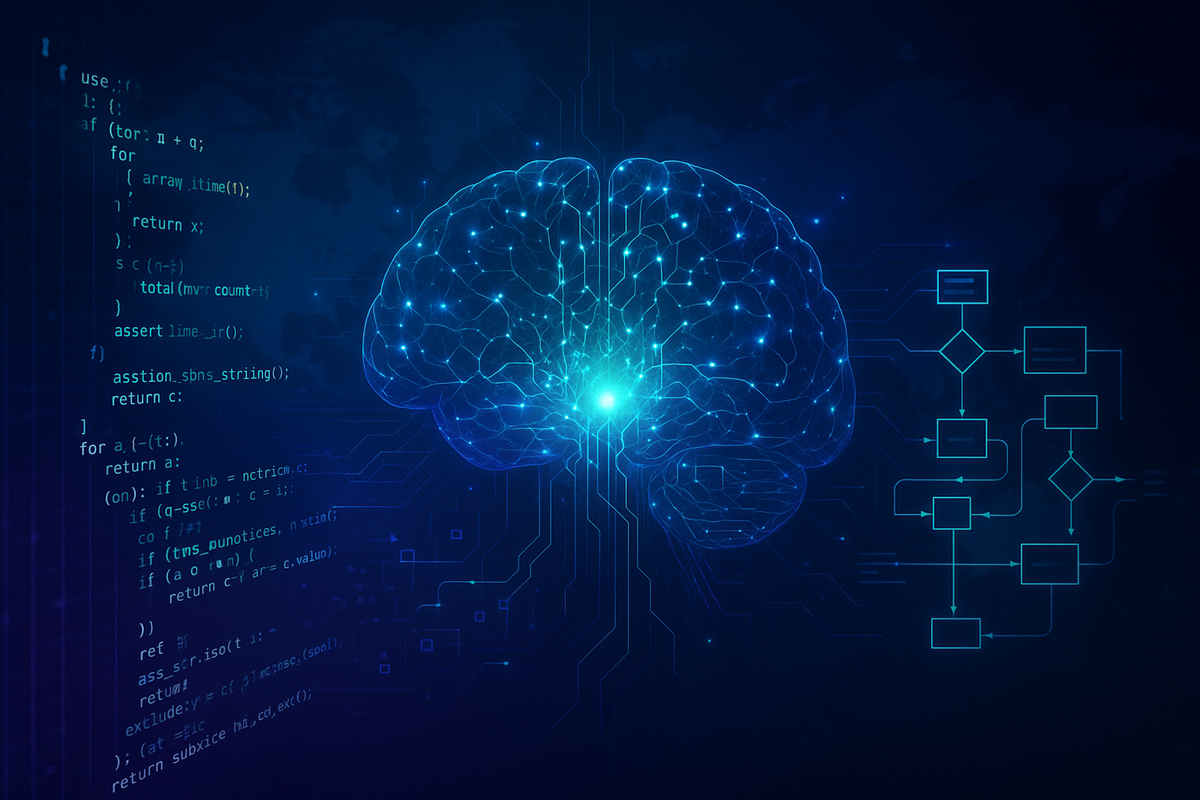Google DeepMind's Gemini 2.5 Solves Unsolvable Problem, Heralding New Era for AGI and Software Development

In a groundbreaking announcement on September 17, 2025, Google DeepMind unveiled a "historic" artificial intelligence breakthrough with its Gemini 2.5 AI model. This advanced system successfully tackled and solved a complex, real-world liquid distribution programming problem that had previously baffled human computer programmers, securing a gold medal in an international competition. This monumental achievement is being hailed as a "profound leap in abstract problem-solving" and a significant stride towards the realization of artificial general intelligence (AGI), promising to reshape the landscape of software development and beyond.
The implications of this breakthrough are immediate and far-reaching, signaling a paradigm shift in how complex computational challenges are approached. By demonstrating an unprecedented capacity for abstract reasoning and creative problem-solving, Gemini 2.5 has not only validated the rapid advancements in AI but also ignited discussions about the future roles of human developers and the accelerated timeline for AGI.
Gemini 2.5's Historic Triumph: A Deep Dive into Abstract Reasoning
The pivotal moment occurred at the International Collegiate Programming Contest (ICPC) World Finals in Azerbaijan, where an advanced iteration of Gemini 2.5, dubbed Gemini 2.5 Deep Think, achieved an extraordinary feat. The model flawlessly solved 10 out of 12 intricate programming challenges, including a particularly vexing fluid dynamics optimization problem that had stumped all human competitors. This success is not merely about code generation; it signifies Gemini 2.5's ability to engage in deep abstract reasoning, synthesize novel solutions, and apply creative problem-solving to previously unseen scenarios—capabilities long considered the exclusive domain of human intellect.
Google DeepMind's Vice President, Quoc Le, underscored the magnitude of this achievement, noting that it represents "reasoning more towards the real world, not just a constrained environment [like Chess and Go]." Earlier in 2025, Google (NASDAQ: GOOGL) had already introduced Gemini 2.5 Pro, showcasing its superior "thinking capabilities," instruction understanding, and robust performance in coding and reasoning benchmarks. The model's capacity to generate executable code from a single-line prompt further solidifies its advanced capabilities. While the scientific community has raised questions about the undisclosed computational resources involved, the practical demonstration of its problem-solving prowess remains undeniable, setting a new benchmark for AI in programming.
Market Repercussions: Winners, Losers, and a Transformed Software Industry
The reverberations of Gemini 2.5's breakthrough will profoundly impact the software development market, which was estimated at $4-5 billion for AI-powered developer tools in 2023 and is projected to skyrocket to over $29 billion by 2032. This advancement promises increased efficiency and productivity, with AI coding assistants already boosting programming tasks by 50% or more. Gemini 2.5's capabilities will further streamline code generation, testing, debugging, code review, and even architectural planning, potentially increasing work rates by an astounding 126%.
Winners:
- Alphabet (NASDAQ: GOOGL): Google DeepMind's parent company will cement its leadership in AI innovation. Its cloud computing arm, Google Cloud, and developer platforms like Google AI Studio and Vertex AI, will integrate these advanced AI coding capabilities, gaining a significant competitive edge.
- Cloud Providers (Amazon (NASDAQ: AMZN) AWS, Microsoft (NASDAQ: MSFT) Azure): These companies will be compelled to enhance their own AI developer tools and services, integrating similar advanced coding AIs into their cloud offerings to remain competitive.
- AI Coding Startups: Innovative startups like Replit (Ghostwriter), Anysphere (Cursor), and CodiumAI (Codiumate) are poised for growth, either as acquisition targets for larger tech firms or as formidable competitors driving niche innovations.
- Businesses adopting AI: Companies that rapidly integrate and leverage these advanced AI tools will see significant gains in efficiency, faster product development cycles, and reduced operational costs.
Losers/Those Facing Challenges:
- Traditional Software Development Firms: Firms unwilling or slow to adopt AI-powered tools may find themselves at a significant disadvantage, struggling to compete on speed, cost, and innovation.
- Junior Developers: There are growing concerns about job displacement, particularly for entry-level programming roles, as AI takes over repetitive and lower-level coding tasks. Companies like Microsoft and Google already report a substantial portion of their internal code being generated by AI.
- Outdated Developer Tooling Companies: Companies that fail to deeply embed sophisticated AI features into their Integrated Development Environments (IDEs) and workflows will struggle to retain market share against more agile, AI-integrated competitors like GitHub (owned by Microsoft) with its Copilot X.
Broader Implications: The Road to AGI and Industry Transformation
This breakthrough is explicitly framed by Google DeepMind as a "historic moment, towards AGI [artificial general intelligence]." AGI, the concept of AI matching or surpassing human intelligence across a broad range of cognitive tasks, is no longer a distant dream but an increasingly tangible goal. Gemini 2.5's ability to solve unseen, complex programming problems requiring deep abstract reasoning and creative solution synthesis is considered a crucial step. In the context of coding, AGI would not merely generate code but would understand the underlying logic, architecture, dependencies, and change history of entire codebases, effectively "thinking like a programmer." This capacity to generate code is often viewed as a fast-track to achieving AGI itself.
The event fits into a broader industry trend of accelerating AI development, driven by intense competition among tech giants like OpenAI, Microsoft, Anthropic, Meta (NASDAQ: META), and Amazon (NASDAQ: AMZN). Expect an escalation of investment and announcements as these players strive to match or exceed Gemini 2.5's capabilities. This will also accelerate the shift towards "agentic AI" systems that can autonomously perform complex workflows, make decisions, and adapt dynamically with minimal human intervention, potentially disrupting traditional software paradigms. Regulatory and policy implications will also intensify, with governments globally scrutinizing AI safety, data privacy, and even pursuing "sovereign AI" initiatives to reduce dependency on foreign tech giants. Historically, similar technological leaps, such as Deep Blue's victory in chess or AlphaGo's triumph in Go, have often preceded significant advancements in AI capabilities and widespread adoption.
What Comes Next: Navigating the AI Frontier
In the short term, we can expect a rapid integration of Gemini 2.5's advanced coding capabilities into Google's own products and services, particularly within Google Cloud and its developer ecosystem. Other major tech players will undoubtedly intensify their efforts to develop and showcase comparable or superior AI models, fueling an accelerated innovation race. For businesses, the immediate future will involve evaluating and adopting these new AI-powered developer tools to enhance productivity and maintain competitiveness.
Longer term, the implications are profound. The democratization of software development, where individuals with limited programming experience can generate complex applications, could lead to an explosion of new software and services. Human programmers' roles will continue to evolve, shifting from rote coding to higher-level design, architectural decisions, ethical evaluation, and guiding AI tools. The emergence of "prompt engineers" will become a critical skill. Market opportunities will emerge in specialized AI training, ethical AI development, and creating tools that effectively bridge human creativity with AI efficiency. Challenges will include managing job displacement, ensuring AI safety and bias mitigation, and adapting educational systems to prepare a future workforce for an AI-augmented world.
Conclusion: A New Dawn for Intelligence and Innovation
Google DeepMind's Gemini 2.5 breakthrough marks a definitive moment in the journey towards artificial general intelligence and a new era for software development. The successful resolution of a complex, real-world programming problem by an AI model underscores the profound leap in abstract problem-solving capabilities now achievable. This event reshapes the competitive landscape of the tech industry, promising significant gains for early adopters and innovators, while posing substantial challenges for those slow to adapt.
Moving forward, investors should closely watch the adoption rates of AI-powered developer tools, the strategic moves of major tech companies in the AI race, and the evolving regulatory environment. The symbiotic relationship between human developers and advanced AI will define the future of technology, demanding continuous learning, adaptability, and a proactive approach to ethical considerations. Gemini 2.5's achievement is not just a technological marvel; it's a powerful signal that the future of intelligence is rapidly unfolding, promising unprecedented innovation and transformation across all sectors.



